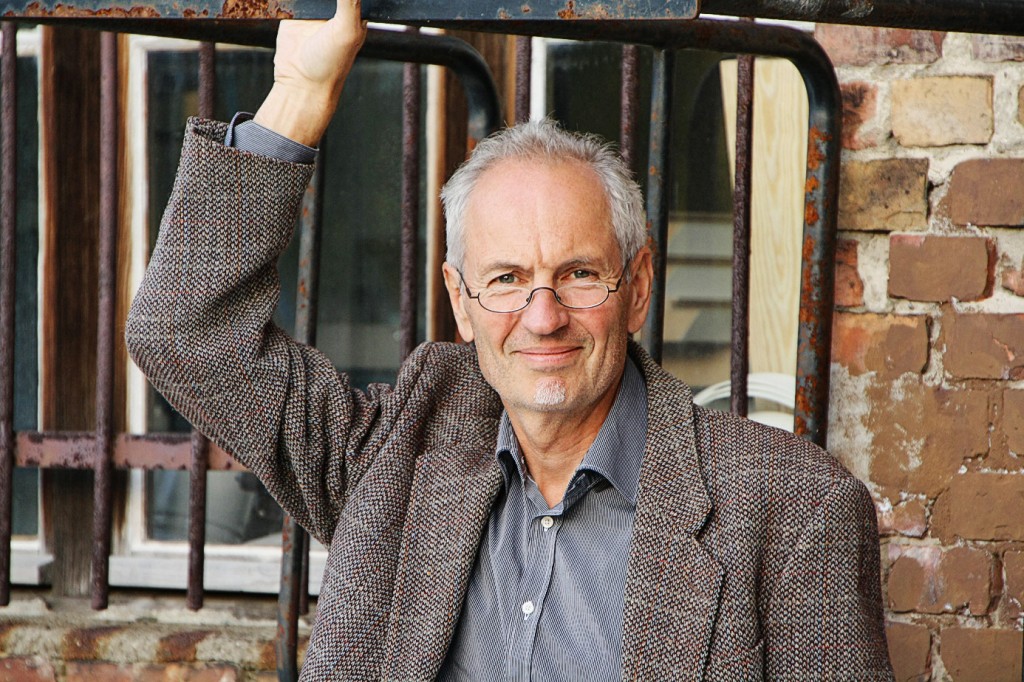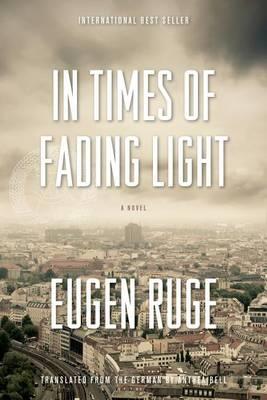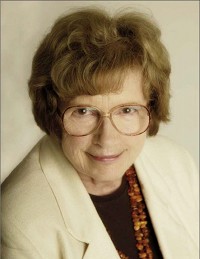Book Review: “In Times of Fading Light” — A Rich Story of Divided Hearts
Though its central events are in the past, conveyed by characters by means of often ambiguous shreds of memory and musing, In Times of Fading Light is a work of quiet power and beauty, dense with sorrow, telling detail, and suspense.
In Times of Fading Light by Eugen Ruge. Translated from the German by Anthea Bell. Graywolf Press, 308 pp., $26.
By David Mehegan
The author of this first novel, which we are told is based upon his family’s twentieth-century history, had a rich trove of story, character, and history to draw upon. But even rich material in ordinary hands does not yield so fine a novel. The tangled yarn of true life and history is awkward and hard to manage. Aside from artistic considerations (What is the story? Whose is it? And who will tell it?), how does the writer fashion a coherent and cohesive whole from the maelstrom of German history from the 1920s to the end of the century? With all these difficulties, it is no surprise that Eugen Ruge, a translator and dramaturge with a background in geophysics, did not complete and publish this book until he was 57.
For readers worldwide, the result makes the long gestation worthwhile. Though its central events are in the past, conveyed by characters by means of often ambiguous shreds of memory and musing, In Times of Fading Light is a work of quiet power and beauty, dense with sorrow, telling detail, and suspense. It was a bestseller in Germany, winner of the 2011 German Book Prize, and has been translated into 15 languages. A reading of it shows why.
It is difficult for Americans to imagine a novel about Germany over this period that scarcely mentions Hitler. Since the German left was annihilated or driven abroad by the Nazis, it is easy to overlook as an indigenous movement, even though its Soviet-sponsored postwar reign in the former Russian zone lasted three times as long as the Third Reich. But however dominated and controlled by Moscow, the German communists were a native species, direct descendants of Marx and Engels. In that line, most of Ruge’s characters are communists or connected to communists through marriage or family. Their bitter struggles, over decades, with this identity—and with one another—in the cold and crumbling East German demimonde form the heart of this story.
It takes place mainly in Berlin and follows four generations: Charlotte Powileit and her husband Wilhelm; her son (by a first marriage), Kurt Umnitzer, and his Russian wife, Irina, and mother-in-law Nadyeshda Ivanovna; their son Alexander and his succession of female consorts; and Alexander’s son, Markus. The 20 chapters are titled simply by year in which the action takes place: the first and last in the book are “2001.” In the first “2001,” middle-aged Alexander is about to place the widowed Kurt—age 80 and far gone with dementia—in a nursing home and fly to Mexico in sentimental search of his grandmother, Charlotte’s, years there. In the second chapter, “1952,” Charlotte and Wilhelm are in Mexico, where they had fled the Nazis on the eve of war, about to return to Germany on instructions of the party. The novel bounces ahead and back in time in this nonlinear fashion, and each character takes one or more turns as the narrating voice of the chapters.
In the early 1930s, Charlotte had left (or survived—this is one of many details that are unclear) her philandering first husband and joined with Wilhelm, a militant, Berlin communist who recruits her to the party. In 1936 he is called to Moscow to be trained for spycraft in Germany. He takes Kurt and his little brother Werner with him and leaves Charlotte behind. When he returns, the boys stay in Russia, “for reasons of safety,” Kurt recalls, but one infers that they might also be hostages of a sort, to guarantee Charlotte and Wilhelm’s reliability. In 1941, Kurt is discovered, in a letter to Werner, criticizing Stalin’s 1939 non-aggression pact with Hitler, and both brothers are sentenced to the Gulag. When Charlotte and Wilhelm’s cover is blown in Germany, they manage to escape with Swiss passports, spending the war years in Mexico. After 15 years in Russia, Kurt is released in 1956 under Khrushchev’s de-Stalinization policy and comes home. But Werner does not return. Kurt reveals to Charlotte that he “was murdered in the Vorkuta gulag,” but we never learn the details.
Age 35 when he returns with his Russian wife, Irina, and baby son, Kurt remains a lifelong communist who becomes a historian and author of a shelf of books. Alexander, the character closest in age and circumstances to the author, grows up in the East German state. He is contemptuous of ideologies and cannot commit to any person or ideal, or indeed complete any serious endeavor, which enrages his father. His son, Markus, is born to a partner whom Kurt never marries. The boy, a teenager near the end of the novel, is even more cynical and alienated than Alexander.
Six of the chapters are entitled “1 October 1989,” which is Wilhelm Powileit’s 90th birthday. A party is held, only weeks before the fall of the Berlin Wall and the collapse of the East German state. Wilhelm’s mind is nearly gone, as Kurt’s will go a decade or so later. He is to receive a medal for his years of service to the party, given by an apparatchik who reads a lengthy and tendentious encomium. This scene is related, in each of the six iterations, through the eyes and minds of a different character in attendance: Irina, Nadyeshda Ivanovna, Wilhelm, Markus, Kurt, and finally Charlotte. The birthday-party chapters progressively disclose a little more about who Wilhelm really is and what he truly (or probably) did as a dutiful party soldier in the 1920s and 1930s.
Although the story begins and ends with Alexander’s voice and actions, Kurt and Charlotte are the strongest and most tragic characters. Although they both know the cruel realities of Stalin and his rule, they maintain a stubborn faith that a humane democratic communism is still possible. Kurt believes that Stalin’s vicious destruction of his allies on the German left in the 1920s and 1930s (a policy repeated in Spain, as described in George Orwell’s Homage to Catalonia) probably aided Hitler’s rise to power. As he weakly applauds the paean to Wilhelm at the party, he thinks, “Even after the ‘seizure of power’ by the Nazis, of which no mention was made in the story of his life, Wilhelm supported the idea of social fascism, which was not to be officially corrected until 1935, only to be outdone in stupidity and obscenity a few years later by the Non-Aggression Pact between the Soviet Union and Hitler’s Germany: lies, all of it, thought Kurt, carrying on with the clapping.” He claps because he could not acknowledge these truths openly. Notwithstanding what they have seen, he and Charlotte cannot bear to see the crimes of communism as intrinsic to the ideology. When a quasi-love interest in Mexico says to her, “Communism, Charlotte, is like the religion of the ancient Aztecs. It devours blood.”, she walks out on him in a fury. Decades later, Kurt quarrels with his son. “Capitalism is murderous, shouted Kurt. Capitalism is poisonous! Capitalism will consume the whole earth . . .” Yet he and his mother are tormented by the fate of Werner and millions like him.
Wilhelm, in contrast, is a kind of freakish New Socialist Man, who handles shifts in the party line, including its support of the Stalin-Hitler pact, with aplomb. He sneers at those with scruples as “politically unreliable.” Comrades had died at the hands of the Nazis, he snarls in his mind, because “one traitor too few had been eliminated”—an activity in which we suspect he participated. At his birthday celebration, he breaks out into an old song: “The Party, the Party, is always right / Then as comrades let us arise / For the right if we fight / We will always be right. . . / Let Lenin’s spirit show / How in Stalin’s care would grow / The Party, the Party, the Party we know!” Though he is appalled, Kurt says nothing.

Eugen Ruge — over the past two decades he has focused on writing and translating plays, including the major dramas of Anton Chekhov. Photo: Jorma Mattila
The structure of this story, or network of related narratives, is not easy to follow at first, and after I had finished the book, I had to hunt back through virtually every chapter to sleuth out the retrospective details that are dropped here and there. And yet the method has a way of intensifying the impact of feeling and thought. It reminded me of Nobel laureate Heinrich Böll’s novels, especially his memorable 1957 Billiards at Half-Past Nine, the story of several generations of the Faehmel family, from World War I to the 1950s. That novel, much like In Times of Fading Light, advances across decades in a kind of dramatic spiral, moving ahead, circling back, moving ahead again.
Since I do not speak or read German, I am not qualified to evaluate Anthea Bell’s translation. But I did forget entirely that this novel was not written in English, and I was filled with admiration that Bell even manages to translate a pun: A character is sickened when his son runs away to the West. “What kind of organ in the body reacted when your son fled from the Republic,” he asks himself, and replies, “A Party organ.” Bell has a fine reputation, clearly deserved, having translated works of Freud and Kafka, as well as W. G. Sebald’s Austerlitz.
Ruge’s gifts as playwright and broadcast script-writer are evident. There is much pain in this book but no onstage violence. The terrors are felt, hinted at, and thought about. Though a pistol is mentioned, it is never fired. One thing we do see clearly is that the only character who is not full of woe is Wilhelm—he is not capable of that emotion or its opposite. While the struggle over communism and its bitter fruits is at the center of the story, the unsurprising outcome is that those who outlive its collapse are no happier than they were. The wall falls, but divided hearts remain.
David Mehegan is a contributing writer. He can be reached at dmehegan@gmail.bu.edu.


